Top 50 Best Online Community Colleges for Financial Aid Assistance

Find your degree

For this Top 50 ranking, we have scored each two-year community college and comparable technical college, located in the United States that offers students a selection of distance-learning programs in an online format, whether synchronous or asynchronous, based on our ranking criteria. We’ve done this to try and determine which of these colleges might best suit students that are serious about obtaining a degree online without breaking the bank. Each of these schools offers traditional face-to-face students and distance-learning students a myriad of different academic scholarships, athletic scholarships, social scholarships, discounts, and a variety of other types of financial aid in addition to offering a healthy selection of educational programs that can be completed online and usually in an asynchronous format.
Methodology
We have judged and ranked all of the two-year community colleges and comparable technical colleges that are located within the United States and that offer a selection of online academic programs for distance-learners to choose from whether they were synchronous or asynchronous. We have ranked each community college based on the following ranking criteria:
- 1/3: Student Financial Aid Rates;
- 1/3: Freshman Retention Rates and;
- 1/3: Graduation Rates
After scoring each school based on these ranking criteria, we then compared each of the schools against each other to determine their final placement in our Top 50 ranking. To gather the information that we required for this list, we utilized each of the school’s websites whenever possible to obtain their overall Student Financial Aid Rates, their Freshman Retention Rates, and their total Graduation Rates. In any cases where we were unable to locate this information on a school’s website, we utilized the databases of following two expansive sites to obtain the required information:
How we scored each of these schools was based on a relatively straightforward and logical formula: we took each of the school’s three scoring rates (Student Financial Aid Rate percentage, Freshman Retention Rate percentage and their Graduation Rate percentage) and added these weighted scores together. The total we were left with, out of a possible 300% (with a total of 100% being the best possible score for each of the three ranking criteria), was what we used to determine each school’s placement within this Top 50 ranking.
The reason we chose the three different rates that we utilized as our ranking criteria is also relatively straightforward; the three criteria used were selected based on the following logical reasoning:
- Student Financial Aid Rate: The school’s overall Student Financial Aid Rate helps to showcase how easy it might be to obtain some degree of financial assistance in one form or another from a particular community college. The types of financial aid that are available through each community college (including academic, merit, external, and athletic scholarships, loans, discounts, and payment assistance options among others) and the types of cost (and in what amounts) that the various forms of financial aid assists with varies from school-to-school and the eligibility for funding varies from student-to-student. However, this rate still serves as a fairly useful and accurate indicator of how much overall financial assistance each student can expect to receive from a particular community college;
- Freshman Retention Rate: A school’s Freshman Retention Rate is a reliable indicator that the students who are enrolled in an academic program at a particular community college are overall content with the quality and the type of monetary assistance and educational instruction that they are receiving from a school’s faculty members;
- Graduation Rate: A school’s total Graduation Rate is a further indicator of how satisfied the attending students are with the quality of the education that they are receiving. The amount of students that decide to stick with a school for the entirety of their academic career can easily be viewed as a strong indicator that the community college in question is more than capable of providing their students with a comprehensive and quality education.
We feel that by looking sharply at these three ranking criteria, we will not only be able help to help serve students in their search to find a high-quality community college or technical school, but will also be able to help them to find one that will allow them to obtain their academic degree or professional/vocational certification online without the cost of education being such a heavy financial burden in their personal and professional lives. This is thanks to the various available financial aid programs and financial assistance services that each of these schools has available for their enrolled students to take advantage of.
Please also check out our ranking of the top 100 best online colleges.
50: Palm Beach State College
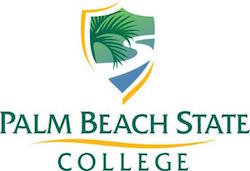
Palm Beach State College, which is commonly referred to simply as Palm Beach State, is a public state-funded community college that is located in Palm Beach County, Florida. Palm Beach State College was originally established in 1933 and was initially known as the Palm Beach Junior College. Palm Beach Junior College was the first public junior college to begin operation within the State of Florida. The junior college’s very first classes were held at Palm Beach High School in West Palm Beach, Florida. In 1948, Palm Beach Junior College moved to Morrison Field, a deactivated Army Air Force base, which is now Palm Beach International Airport. In 1951, the college relocated to the Lake Park Town Hall. Due to the limited availability of space at the town hall, the college had to lay off faculty and staff and cut enrollment to 200 students. During this period, Palm Beach Junior College was known as “the little orphan college.”
Today, Palm Beach State College’s traditional on-campus classes are held at the college’s 114-acre main campus in Lake Worth, where they have taken place since the college moved to this location in 1955 after being gifted the land by the Palm Beach County Commission. Palm Beach State College is a member institution of the expansive Florida College System. Palm Beach State College offers distance-learning students a selection of online academic programs. These online programs are taught in an asynchronous format, and the programs available are: a Bachelor of Applied Science in Supervision and Management degree program, a Bachelor of Applied Science in Information Management degree program, a Registered Nurse to Bachelor of Science in Nursing (RN to BSN) degree program and a Project Management certification program.
Palm Beach State Website: https://www.palmbeachstate.edu/
Student Financial Aid Rate: 68.0%
Freshman Retention Rate: 35.0%
Graduation Rate: 32.0%
Final Score: 135.0/300
49: Broward College

Broward College is a state-supported community college that operates its main campus (the A. Hugh Adams Central Campus) in Fort Lauderdale, Florida and that operates two additional satellite campuses; the Judson A. Samuels South Campus in Pembroke Pines and the North Campus in Coconut Creek. Broward College offers distance-learners a variety of online and fully asynchronous academic programs, such as: an Associate in Science in Accounting Technology degree program, an Associate in Science in Business Administration degree program, an Associate in Science in Computer Systems Specialist degree program, a Bachelor of Applied Science in Information Technology degree program, a Bachelor of Applied Science in Supervision and Management degree program, a Bachelor of Applied Science in Technology Management degree program and a Bachelor of Science in Nursing degree program, among many other degree programs.
Additionally, Broward College offers a selection of numerous different technical certification programs. These technical certification programs include an Accounting Technology Management certification program, an Airport Management certification program and three different Office Management certification programs (Medical Office Management, Office Management Specialist and Office Support Management.
Broward College initially began operating in 1959 as the Junior College of Broward County, and the junior college was established as part of a plan that was designed to ultimately expand the number of counties in the State of Florida that were able to be appropriately and efficiently served by a nearby two-year college. The junior college’s name would later be changed from the Junior College of Broward County to Broward Junior College in 1968. Again the college would go through another name change–this time to Broward Community College–in 1970. Finally, the college would eventually adopt its present-day name of Broward College in 2008 when–after nearly five decades after opening its doors for the first time–the school was granted the ability to confer eligible students a four-year Bachelors degree upon their successful completion of one of the college’s newly-created four-year academic programs.
Broward College Website: https://www.broward.edu/Pages/home.aspx
Student Financial Aid Rate: 80.0%
Freshman Retention Rate: 30.0%
Graduation Rate: 26.0%
Final Score: 136.0/300
48: Florida State College at Jacksonville

Florida State College at Jacksonville, which is commonly referred to simply as FSCJ, is a state-supported community college that is located in Jacksonville, Florida and that is a part of the Florida College System. Florida State College at Jacksonville offers its numerous distance-learning students a variety of online and asynchronous academic programs, such as a: a Bachelor of Science in Business Administration degree program, a Bachelor of Applied Science in Information Technology Management degree program, a degree program and an Accounting Technology Specialist certification program among others.
Florida State College at Jacksonville was originally founded in 1965 as the Florida Junior College. Due to the growth in popularity of community colleges in the state and the nation, the junior college was renamed to Florida Community College at Jacksonville in 1986. In 2009, due to a severe lack of four-year colleges operating in the state, the Florida Legislature passed a piece of legislation that would be the creation of what would be later known as the Florida College System. This legislation enabled some of the various two-year community colleges in the State of Florida to start operating as four-year community colleges that were known as “state colleges.” Today, these state colleges are any college that is capable of offering students–both traditional on-campus students and distance-learning students–with a greater selection of various four-year Bachelors degree programs from which they can choose to enroll in, but are still unable to offer any graduate degree-granting academic programs. Many more four-year academic programs in total can be provided by these four-year state-supported community colleges than the capacity of a more traditional two-year community college, which allows them to provide to their students a greater amount of overall academic flexibility. Immediately following the passing of this state legislation that created these state colleges, Florida Community College at Jacksonville became one of the very first community colleges to transition into and begin operating as one of these newly-created state colleges. Due to this change into one of these four-year state-supported community colleges, Florida Community College at Jacksonville announced that they would be changing their name a third and final time. This name change to the school’s present-day name was announced and took effect in the same year (2009) that the school made its transition into a state college and the name change occurred to better represent the school’s newly granted capabilities as a provider of higher education.
FSCJ Website: https://www.fscj.edu/
Student Financial Aid Rate: 77.0%
Freshman Retention Rate: 37.0%
Graduation Rate: 32.0%
Final Score: 146.0/300
47: College of Central Florida

The College of Central Florida, which is commonly referred to simply as CF, is a public state-supported community college that is located in Ocala, Florida. The College of Central Florida is a member institution of the Florida College System. It has its accreditation through the Southern Association of Colleges and Schools Commission on Colleges (SACS), which is one of the six United States Department of Education- and Council for Higher Education Accreditation-approved regional accrediting bodies that operate within the United States. SACS is responsible for accrediting public and private schools–ranging from the preschool level all the way to the collegiate level–that are operated within the southern region of the United States as well as being responsible for accrediting schools that are designed for students who are both citizens of the United States and who are studying at an institution operating in Mexico, the Caribbean, Central America or that is operating in South America.
Central Florida Junior College–as the College of Central Florida was originally known–was first established in 1957 and initially serviced the communities of Citrus, Levy and Marion Counties. The school’s doors officially opened during the 1958 academic school year, and instruction began with a total of a mere 320 total enrolled students who had to be taught in temporary teaching facilities that were housed in the Marion County Vocational School. In 1966 Central Florida Junior College merged with the Hampton Junior College. The Hampton Junior College first opened during the 1958 academic year, the same as Central Florida Junior College. Hampton Junior College, in the beginning, was one of the very first two-year colleges in the State of Florida that was started to educate students of color. In 1971 the school changed its name from Central Florida Junior College to Central Florida Community College. The school would operate under the name of Central Florida Community College for nearly 40 years when, in 2010, the school officially changed its name to its present-day name of the College of Central Florida. This final name change would occur after 52 years of operating as a two-year community college. It eventually became one of the state’s many four-year community colleges that operate under the name of “state colleges,” allowing CF to offer more than 20,000 total enrolled students a variety of Bachelors degree-granting programs from which they can choose. Many of the school’s available academic programs are not only taught in a traditional on-campus format but also in an online and asynchronous format, such as the highly popular Registered Nurse to Bachelor of Science in Nursing (RN to BSN) distance-learning program.
CF Website: https://www.cf.edu/
Student Financial Aid Rate: 78.0%
Freshman Retention Rate: 40.0%
Graduation Rate: 33.0%
Final Score: 151.0/300
46: Meridian Community College

As a state-supported community college that is located in Meridian, Mississippi, Meridian Community College makes obtaining an academic degree or a professional certificate in an online and asynchronous format as stress- and hassle-free as possible. Meridian Community College–which is commonly referred to as Meridian CC or simply as Meridian–is a member institute of the Mississippi Virtual Community College (MSVCC). The MSVCC is a consortium that provides distance-learning students with the ability to choose from a variety of internet-based courses that are taught in the MSCVV schools. Any of the students that are enrolled with one of the various MSVCC member institutes can take advantage of collaborations between and partnerships with numerous state-supported colleges that are located throughout the state of Mississippi.
Due to its membership in this consortium, Meridian Community College can offer their distance-learning students a wide variety of online and asynchronous programs that span across numerous different areas of study. A few of the many online and asynchronous academic programs that are available through the MSVCC include a Health Information Coding certification program, a Fire Protection Technology certification program among others. Many of the courses that are available through MSVCC require students to take proctored exams for successful program completion. Luckily, there are numerous proctored exam sites located conveniently throughout the state of Mississippi. Even more convenient is the fact that out-of-state students are exempt from having to make a physical appearance at one of these proctored examinations sites; instead, they are allowed to take their proctored exams via a secure, online program which is overseen and administered by a qualified faculty member.
Meridian Website: https://www.meridiancc.edu/
Student Financial Aid Rate: 72.0%
Freshman Retention Rate: 54.0%
Graduation Rate: 25.0%
Final Score: 151.0/300
45: Kilgore College

Kilgore College (which is commonly referred to as Kilgore or simply as KC) is a two-year community college that is located in Kilgore, Texas, which is a small town that is situated approximately 120 miles east of Dallas, Texas and which is located roughly 70 miles west of Shreveport, Louisiana. Kilgore College was originally established in 1935 at the height of the East Texas Oil Boom. Due to when the college was established, it is now home to the East Texas Oil Museum. The East Texas Oil Museum houses an expansive collection of memorabilia that documents and highlights this period in the State of Texas’ long history. One of the East Texas Oil Museum’s more popular exhibits is known as Boomtown, USA, which is a full-scale town that features many stores, people, animals and machinery which all work together to depict the lively activity of a town during the Oil Boom of the 1930’s.
Today, Kilgore College is fully accredited by the Southern Association of Colleges and Schools Commission on Colleges to award eligible students with a variety of different Associates degree upon their successful completion of a degree-granting academic program. The various undergraduate degree-granting programs and technical certificate programs that are offered through Kilgore College’s academic divisions span across numerous different areas of study. Many of these available programs are also extended to distance-learning students via an online and fully asynchronous format, which allows the college’s students to have an even greater amount of academic freedom and flexibility. Kilgore is additionally a member institute of the Virtual College of Texas (VCT), which essentially means that nearly 500 additional online and asynchronous for-credit courses are available to Kilgore’s students due to the college’s partnerships with various other public VCT colleges. In addition to providing their more than 9,000 total enrolled students with a variety of for-credit courses and noncredit courses, Kilgore College is also able to boast about offering to their students one of the lowest costs per credit hour of any college or university that is located in the State of Texas. This works to ensure that Kilgore students not only receive a comprehensive and highly flexible education but that they will see a more positive Return-On-Investment (ROI) than they might otherwise see.
Kilgore Website: https://www.kilgore.edu/
Student Financial Aid Rate: 72.0%
Freshman Retention Rate: 56.0%
Graduation Rate: 25.0%
Final Score: 153.0/300
44: Valencia College

Valencia College is a public state-supported community college that is located in Orlando, Florida. Valencia College operates as what is known as a “state college,” meaning it offers students a selection of Bachelors degree programs in addition to various Associates degree programs and technical certification programs. In addition to the college’s main campus in Orlando, Valencia also operates several other satellite campus locations around the city of Orlando, with additional campus locations in Winter Park and Kissimmee, Florida. Valencia College was originally established in 1967 and began instructing students under the name Valencia Junior College. Valencia Junior College would later adopt the name Valencia Community College when the school’s curriculum was expanded during the 1971 academic school year. In December of 2010, Valencia College’s Board of Trustees passed a vote to change the college’s operating name from Valencia Community College to its present-day name of Valencia College. This final name change occurred 53 years after the school first opened its doors to students. The reasoning behind the vote for this name change was because the school’s academic curriculum was expanded yet again. This newly developed curriculum allowed the college to begin offering to its students a selection of several different Bachelors degree programs that spanned across a variety of different fields.
Overall, Valencia College makes obtaining a career-launching online degree or career-enhancing certification easy and affordable and, according to the well-respected Aspen Institute, Valencia College is dedicated to continuing to strive for educational excellence. In their 2011 community college ranking, Valencia College was named the Top Community College in the entire nation by the Aspen Institute. The Aspen Institute is an international nonprofit consortium of partners that was originally founded in 1950 and that–today–is known to be dedicated to “…fostering enlightened leadership,” to “…the appreciation of timeless ideas and values,” and to “…open-minded dialogue on contemporary issues.” Additionally, the Aspen Institute has awarded Valencia College with the very first ever awarded Aspen Prize for College Excellence. This honor was bestowed on the college after a year-long effort to recognize extraordinary accomplishments that were made by the individual 1,200 community colleges in the nation.
Valencia College Website: https://valenciacollege.edu/
Student Financial Aid Rate: 76.0%
Freshman Retention Rate: 43.0%
Graduation Rate: 39.0%
Final Score: 158.0/300
43: City College of San Francisco
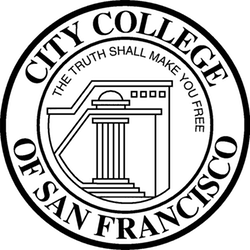
The City College of San Francisco, which is commonly referred to as City College or simply as CCSF, is a public two-year community college that is located in San Francisco, California. The City College of San Francisco was originally established as a junior college in 1935 which was known as the San Francisco Junior College. The San Francisco Junior College was created by Archibald Jeter Cloud, who was the Chief Deputy Superintendent of the San Francisco Unified School District (the SFUSD). At first, morning classes were held at the University of California Extension building on Powell Street and the school’s afternoon classes took place at Galileo High School. The long distance between the two class locations gave rise to the Junior College’s first nickname, the Trolley Car College. Today, the City College plays a very important local role, enrolling as many as one-in-nine of the San Francisco-area residents annually. City College comprises the entire San Francisco Community College District, meaning it is the only community college that is located in the City of San Francisco. The school’s Ocean Avenue campus is the college’s largest campus location, but the college operates additional satellite campuses in the neighborhoods of South San Francisco, the Financial District, Little Saigon, South of Market, Bayview-Hunters Point, Marina District, North of Panhandle and in Mission District.
The City College of San Francisco offers more than 23,000 total enrolled students–both traditional on-campus and distance-learning students–a variety of for-credit courses and many noncredit courses in over 50 academic programs which span across more than a 100 different fields. Many of the school’s comprehensive academic degree-granting programs and professional certification programs are taught in an online and asynchronous format to serve the college’s many enrolled distance-learning students better. The City College of San Francisco currently has many articulation agreements with the various private and public universities in the State of California, and across the nation. One of these articulation agreements with California State University and the University of California among others allows for the college’s students to have a significant amount of academic flexibility and overall freedom. The college also offers a variety of free not-for-credit courses that cover various life-enhancing topics such as English as a Second Language (ESL) and Citizenship.
CCSF Website: https://www.ccsf.edu/
Student Financial Aid Rate: 55.0%
Freshman Retention Rate: 72.0%
Graduation Rate: 33.0%
Final Score: 160.0/300
42: Santiago Canyon College

Santiago Canyon College is a two-year community college that is located in Orange, California. Along with Santa Ana College, Santiago Canyon College is one of two campuses in the Rancho Santiago Community College District (RSCCD), which one of four community college districts that is located in Orange County, California. In 1980, The Irvine Company (which is a privately-owned real estate company) sold a total of 30-acres of land to the Rancho Santiago Community College District. In 1985, the Rancho Santiago Community College District opened what would later become Santiago Canyon College. At the time, the school was simply called the Orange Campus and was a satellite campus of Santa Ana College (which is located in Santa Ana, California and which itself was originally established in 1915), which was the only member institute of the Santiago Community College District at that time. Initial student enrollment of the Orange Campus was comprised of approximately 2,500 total students during the campus’ first semester of operation as a satellite campus. In 1997, the Orange Campus separated from Santa Ana College, and its name was changed to its present-day name of Santiago Canyon College.
In January of the 2000 academic school year, Santiago Canyon College was independently accredited by the Accrediting Commission for Community and Junior Colleges, which is part of the Western Association of Schools and Colleges (WASC), which is one of the six United States Department of Education- and Council for Higher Education Accreditation-approved regional academic accrediting bodies that is responsible for the accreditation of both private and public institutions of education. Later in 2000, The Irvine Company donated an additional 12-acres to Santiago Canyon College. The size of the land owned by the school was expanded yet again in 2003 when RSCCD used funds that were provided through a piece of legislation known as Measure E (which was passed late in 2002) to purchase an additional 18-acres of land. Today, the school offers its more than 16,000 total enrolled students 65 different Associates degrees which span across many different concentrations. Many of these academic programs are available to distance-learning students via an online and asynchronous format.
Santiago Website: https://www.sccollege.edu
Student Financial Aid Rate: 51.0%
Freshman Retention Rate: 75.0%
Graduation Rate: 35.0%
Final Score: 161.0/300
41: Orange County Community College
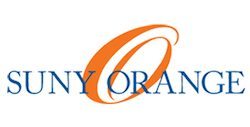
Orange County Community College is one of the many colleges that are part of the State University of New York System. Because of the association, it’s commonly referred to as SUNY Orange. There are two campuses, and the main one is in Middletown, New York, and the second one is in Newburgh, New York. There are three satellite campuses in Central Valley, Port Jervis, and Warwick. This community college was opened in 1950 due to a lack of post-secondary opportunities in that particular area. There were only 160 students at that time, and now there are 6,162. SUNY Orange provides professional certifications, Associates degrees, personal enrichment, and career advancement training. It is accredited by the Middle States Association of Colleges and Schools. Six of their programs have specific accreditation, two of them are nursing programs. Because of the quality of the nursing programs they offer, the school is among the top ten nursing colleges in the SUNY system.
There are 36 different degree programs available from SUNY Orange. Of all the enrolled students, the majority of them are part-time participants in these programs, and only 12% of them take advantage of the distance-learning opportunities offered. They have ed2go courses, which are 6 weeks long and led by expert instructors. These are intended to bolster professional skills, and the options are extremely diverse. There are also vocational career training distance programs, 239 of them, available in desirable fields like Arts and Design, Business, Computer Applications, Computer Programming, Construction and Trades, Health and Fitness, Hospitality, Information Technology, Language, Law, and Writing. Experienced professionals in each field are consulted during the construction of these programs, and there are instructors and mentors at your disposal as you complete them.
SUNY Orange Website: https://www.sunyorange.edu/
Student Financial Aid Rate: 77.0%
Freshman Retention Rate: 65.0%
Graduation Rate: 20.0%
Final Score: 162.0/300
40: Daytona State College

Daytona State College first opened in 1957 as Daytona Beach Junior College. It was one of the first comprehensive colleges in Florida, and it was divided into three parts — college credit, adult education, and the Mary Karl Vocational School. They all functioned separately but under the same governance. After being racially integrated and restructured into one cohesive institution, it was renamed Daytona Beach Community College in 1971. It became a four-year college in 2006 when the first Bachelors degree program was created. To reflect this upgrade, it became Daytona State College. Although the school offers four-year degrees, the majority of the available programs are two-year degrees or programs that focus on adult education and workforce entry upon program completion. Daytona State or DSC is comprised of four colleges, the College of Health and Public Services; the College of Workforce, Continuing and Adult Education; the College of Business, Engineering & Technology and; the College of Arts and Sciences.
There are 12,706 students enrolled at DSC, with 64% of them being part-time, and about 50% of them take part in some kind of distance-learning. There are 88 degree programs available at DSC, and they are all covered by the institutional accreditation from the Southern Association of Colleges and Schools, Commission on Colleges. Six of the programs, in the fields of Nursing, Dentistry, and Occupational/Physical Therapy all hold specialized programmatic accreditation as well. There are 14 fully-online and asynchronous certificate programs for distance-learning students, ten Associates degree programs, and four Bachelors degree programs. All of the Bachelors degrees require students to complete an Associates degree in their first two years at the school. All of the programs are in highly relevant fields and will prepare you for a career whether it is in Accounting, Computer Programming, Engineering Technology, Criminal Justice, and any one of the ten other options.
DSC Website: https://www.daytonastate.edu
Student Financial Aid Rate: 72.0%
Freshman Retention Rate: 62.0%
Graduation Rate: 34.0%
Final Score: 168.0/300
39: Minnesota State College Southeast

With a variety of online and asynchronous academic programs available for distance-learning students to enroll in, such as: an Associate of Applied Science in Accounting degree program, an Associate of Applied Science in Administrative Support degree program, an Associate of Applied Science in Computer Aided Design (CAD) Drafting Technologies degree program, an Associate of Applied Science in Cyber and Information Security degree program and an Associate of Applied Science in Early Childhood Education degree program among many others, Minnesota State College Southeast is able to provide its numerous students with a highly flexible and comprehensive education.
Minnesota State College Southeast, which is commonly referred to simply as Southeast MN, is a two-year community college with campuses in both Red Wing, Minnesota and Winona, Minnesota. Minnesota State College Southeast was originally established in 1949 as the Winona Area Vocational-Technical School. The school’s current main campus was opened in Winona in 1967. In 1971, the Red Wing Area Vocational-Technical Institute was founded. In 1992, the two colleges merged under the Minnesota Technical College System, forming what is now known as Minnesota State College Southeast. Today, Minnesota State College Southeast is fully accredited by the Higher Learning Commission (HLC), and the college offers traditional on-campus students and distance-learning students numerous undergraduate degree-granting programs and professional certificate programs from which they can choose.
Southeast MN Website: https://www.southeastmn.edu/
Student Financial Aid Rate: 81.0%
Freshman Retention Rate: 61.0%
Graduation Rate: 31.0%
Final Score: 173.0/300
38: Santa Fe College

Santa Fe College is part of the Florida College System, and it is located in Gainesville, Florida. It was originally founded in 1965 as Santa Fe Community College. Though it no longer bears that name, it has repeatedly been recognized as one of the best community colleges in the nation by Community College Week and The Aspen Institute. The name was shortened to just Santa Fe College in 2008 to reflect the institution’s ability to confer Bachelors degrees. The college’s main campus features an award-winning library and is home to a 10-acre zoo called The Santa Fe College Teaching Zoo. The zoo was built in 1970, but their zoo program has only been accredited since 2000.
Marco Rubio, a 2016 Presidential candidate, is a graduate of Santa Fe College. The man who served as the Director of FEMA under former president Obama and Olympian Robin Campbell are also among alumni. The majority of their 22,043 students are part-time. The college has the widest variety of programs at the two-year level, with over fifty of them being fully accredited programs in technology and applied sciences. Many of the different areas of study in which an Associate of Science is offered also have bridge programs to allow students to progress to the four-year college. These include a Dental Hygiene Program, and a Zoo Animal Technology Program.
Santa Fe College Website: https://www.sfcollege.edu/
Student Financial Aid Rate: 69.0%
Freshman Retention Rate: 53.0%
Graduation Rate: 51.0%
Final Score: 173.0/300
37: Big Bend Community College

Big Bend Community College is a two-year college that offers 43 different Associates degrees, and 16 other certificate programs in vocational fields or that lay a foundation for academic transfer. It was founded in 1962 after being authorized by the Washington State Board of Education. The first classes were held in the newly-built facility that took the place of the Larson Air Force Base in the year 1963. The Moses Lake, Washington-based campus is the only one, comprised of 25 different buildings. Most credits will be available for transfer because BBCC is accredited by the Northwest Commission of Colleges and Universities. There are dormitories available for the students who wish to live on campus, which is decidedly unique for a community college. There are also a variety of distance-learning options.
BBCC hosts several extension sites through Washington, offering day and evening classes. These extension sites have GED programs, Adult Basic Education Programs, and ESL programs; the other services include degree planning, textbook ordering, and assistance with scholarship applications. There are also several online options provided to students. BBCC is extremely committed to fostering success in the surrounding community and beyond it. The school is a member of the Washington Online degree program, offering Associate of arts and science degrees. Big Bend Community College also guarantees that all the same faculty teaches the online courses as the traditional ones, so no student is missing out regardless of their angle of attack when it comes to achieving their academic goals.
BBCC Website: https://www.bigbend.edu/
Student Financial Aid Rate: 78.0%
Freshman Retention Rate: 63.0%
Graduation Rate: 37.0%
Final Score: 178.0/300
36: Athens Technical College
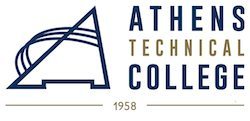
Athens Technical College, or Athens Tech, is one of the 24 technical colleges that comprise the Technical College System of Georgia. It was founded in 1958 as a vocational school and went by two other names before the current one, which was adopted in 2000. Its main campus is in Athens, Georgia, but it has satellites in Elberton, Greensboro, and Monroe, Georgia. There are also educational centers operated by Athens Tech all over the ten-county service area. There are 4,210 students pursuing either a certificate or Associates level degree through one of the 98 available programs. Athens Tech is accredited by the Southern Association of Colleges and Schools, Commission on Colleges, and has been since 1988. Five of the programs offered through their division of Life Sciences and Public Safety also hold individual accreditation.
75% of the student body at Athens Tech are part-time students, and 99% of them are Georgia natives. There are 124 courses offered entirely online, and even more that are available in a hybrid format. None of the online courses at Athens Tech are self-paced or asynchronous. Students will have designated lecture times and will have to complete a minimum number of assignments each week. As the distance-learning program of the Technical College System of Georgia continues to expand, students will be able to earn their entire degree this way. Athens Technical College does require at least one proctored activity per course, even if it specifies that it is 100% online. Proctored activities are required learning events; all students of the particular course are expected to attend and to be able to present valid photo identification. The online courses offered at Athens Tech present the same material through the same experienced faculty as the physical classes, with more flexibility and a smaller student to faculty ratio.
Athens Tech Website: https://www.athenstech.edu/
Student Financial Aid Rate: 89.0%
Freshman Retention Rate: 63.0%
Graduation Rate: 28.0%
Final Score: 180.0/300
35: White Mountains Community College

White Mountains Community College has two main campuses in Berlin and Littleton, New Hampshire. There is also a limited satellite campus in Conway, New Hampshire. It was founded as a vocational school in 1966. The inaugural class only graduated 104 students. It has continued to expand its mission of being a “student-centered educational institution providing opportunities for educational and career mobility while sustaining community development.” WMCC tries to remain ahead of the job-expansion curve in New Hampshire to make sure it is preparing students adequately for their real lives. The school is also part of the Community College System of New Hampshire, which has a partnership with the University System of New Hampshire. They’ve created a database of courses that are transferable to different universities in the state.
WMCC offers four different Associates degrees online. They are programs in Accounting, Business Administration, Criminal Justice, and a program to help you become a Health and Wellness Facilitator. The school also has certificate programs in the fields of health and wellness, Autism education, and more. All of their distance-learning programs are accredited by the New England Association of Schools and Colleges Commission on Higher Education and are actively taught by faculty at WMCC. All programs that are available can be completed entirely online and asynchronously, or in a hybrid format.
WMCC Website: https://www.wmcc.edu/
Student Financial Aid Rate: 82.0%
Freshman Retention Rate: 73.0%
Graduation Rate: 30.0%
Final Score: 185.0/300
34: Copiah-Lincoln Community College
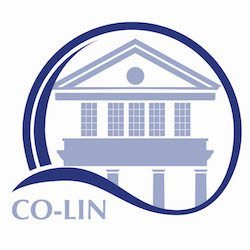
Copiah-Lincoln Community College or Co-Lin is a community college headquartered in Wesson, Mississippi. It was founded in 1928 and serves the surrounding seven counties. Co-Lin enrolls over 3,200 students across their three campuses located in Wesson, Mendenhall, and Natchez, Mississippi. Among their alumni are seven NFL players, and a few other notable athletes that played in college, and in professional leagues. Over 60 of their alumni have been recognized as NJCAA Academic All-Americans in the past 20 years. The school was originally Copiah-Lincoln Agricultural High School, and 1928 was when it grew into Copiah-Lincoln Junior College. It remained so until 1988 when program expansion and commitment to the youth and surrounding community merited the new title.
The school is accredited by the Southern Association of Colleges and Schools Commission on Colleges which makes them qualified to confer Associates degrees upon eligible students. They have several programs that have more specific accreditation from other accrediting bodies relevant to their field; this includes their Associate Degree Nursing Program that is accredited at the state level by the State level by the Board of Trustees of State Institutions of Higher Learning of Mississippi, and nationally by the Accreditation Commission for Education in Nursing. Co-Lin is a participant in the Mississippi Virtual Community College, maintained by a part of the Mississippi Community College Board. Through MVCC, students can take part in the various eLearning programs at Co-Lin.
Co-Lin Website: https://www.colin.edu/
Student Financial Aid Rate: 89.0%
Freshman Retention Rate: 62.0%
Graduation Rate: 36.0%
Final Score: 187.0/300
33: Walla Walla Community College
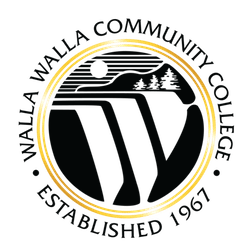
Walla Walla Community College is a community college with several campuses in southeastern Washington state. It began in 1967 with its main campus in Walla Walla, Washington. At the time it took over what used to be Walla Walla High School and served 800 students. The community need quickly surpassed the capacity of that educational complex, so another campus was built nearby. Today, in addition to those, WWCC has a school in Clarkston, Washington and runs a facility at the Washington State Penitentiary. One of the most significant programs at WWCC is the enological and viticultural program established in the 90’s. The town was on economically shaky ground, and this program helped foster much-needed growth in the wine industry. Their alumni are employed in almost 200 wineries that contribute directly to the economy in the area.
There are a variety of different certificates that students can work towards as they prepare to enter the workforce and 45 Associates degree programs that allow students to go directly into the professional sphere or transfer to a four-year college. Walla Walla Community College is accredited by the Northwest Commission on Colleges and Universities. The institution also holds certification by the Washington State Board for Community and Technical Colleges allowing them to offer courses in Academic Transfer Education, Professional-Technical Education, Transitional Studies, and Extended Learning. WWCC is consistently adding to its distance-learning catalog. Currently, students can earn transfer degrees in Turf Management, Business, and Human & Social Services. These programs are designed to transfer to specific baccalaureate degree programs. Students can also receive some certificates online, and one technical degree in Turf Management.
WWCC Website: https://www.wwcc.edu/
Student Financial Aid Rate: 83.0%
Freshman Retention Rate: 64.0%
Graduation Rate: 40.0%
Final Score: 187.0/300
32: Southcentral Kentucky Community and Technical College
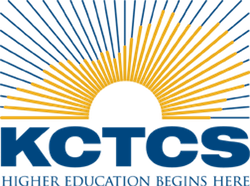
Southcentral Kentucky Community and Technical College was known as Bowling Green Technical College until a recent change in 2012. It was known by a few others names since its establishment in 1939, but this final name change was precipitated by a newly acquired accreditation by the Southern Association of Colleges and Schools that designated it as a community college rather than just a technical school. The difference between the two is that a technical school is a two-year institution that provides employment preparation, and is usually known as a vocational school. Community colleges are typically two-year institutions as well; however, they are qualified to award the Associate in Arts and Associate in Science degrees. The school is often abbreviated as SKYCTC and operates six campuses that serve four Kentucky counties.
The Kentucky Community and Technical College System partners with the Kentucky Virtual Campus Program (KYVC) in order to offer five different types of distance-learning classes. Students can take web-enhanced, hybrid, or blended courses that all require on-campus meetings but use online course delivery methods to supplement instruction. KYVC eLearning local is the primary program students enroll in at SKYCTC, which offers online courses to students whose home college is SKYCTC. Because of the nature of the KYVC Program, students may also take complete web-based courses through that program and later apply it to their SKYCTC degrees. All of these methods that don’t require any campus visits are offered asynchronously.
SKYCTC Website: https://southcentral.kctcs.edu/
Student Financial Aid Rate: 94.0%
Freshman Retention Rate: 64.0%
Graduation Rate: 30.0%
Final Score: 188.0/300
31: Trinidad State Junior College

Trinidad State Junior College or just TSJC is a two-year college that was originally established in 1925. This school was the first ever community college in the state of Colorado, and since then, it has maintained the highest student completion rate among all the community colleges in the state. The institution was accredited by the Higher Learning Commission in 1962 and has been continually accredited since then. The school also has a few programs that have received special accreditation, such as the Nursing Program’s accreditation by the Accreditation Commission for Education in Associate Degree Nursing. TSJC has 1,800 students spread out across its two campuses in Trinidad and Alamosa, Colorado, as well as in their online programs.
Part of the commitment to serving their students has lead to TSJC being the provider of a diverse selection of programs in traditional subjects, and also areas such as cosmetology, aquaculture, gunsmithing and more. Trinidad State Junior College is renowned for its gunsmithing education program and is one of the top three in America. More than 100 different classes are available online at TSJC; some are taught by faculty at the school, and some courses are taught by instructors through the Colorado Community College System. Currently, the AAS Degree and Certificate in Occupational Safety and Health Technology is the only program offered fully online and taught entirely by staff at Trinidad State Junior College.
TSJC Website: https://www.trinidadstate.edu/
Student Financial Aid Rate: 88.0%
Freshman Retention Rate: 55.0%
Graduation Rate: 45.0%
Final Score: 188.0/300
30: University of Arkansas Community College – Batesville

The University of Arkansas Community College at Batesville was originally Gateway Technical College and was founded as such in 1991. At the time, the only offerings were vocational programs in electric and mechanics. The University of Arkansas took over in 1997, which prompted the renaming of Gateway to its current title. It is often referred to as UACCB, and it is part of the University of Arkansas System. Now, students can take vocational courses as well as earn Associates degrees or just college credit towards the core requirements of a degree they plan to complete at a four-year university. The university system invested considerably in campus expansion; however, it is still a modest institution. It currently has a staff of around just 300, and a student body of only 1,345.
The campus is located in Batesville, Arkansas and is non-residential. As part of scoring this school, the percentage of their students that receive financial aid came into light. 81% of all of their students are receiving some kind of assistance. Additionally, over half of the students receiving aid are receiving it at the state or local level with an average grant amount of $1,900. The average net price per academic year is $5,598. UACCB strives to make their degree programs affordable and accessible to the community. Part of that accessibility is in their online degree options. Their most popular online degree program is the LPN to RN program. It is offered only in a synchronous format, and although all the coursework is online, the program does require several on-campus visits over the course of the 11 months students take to complete it. In every effort to make the program easier for these distance-learning students, dates are published at the beginning of the year.
UACCB Website: https://www.uaccb.edu/
Student Financial Aid Rate: 81.0%
Freshman Retention Rate: 62.0%
Graduation Rate: 45.0%
Final Score: 188.0/300
29: Miles Community College
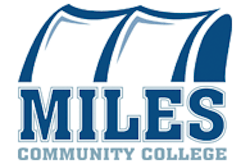
Miles Community College is a very small community college in Miles City, Montana. There are 497 students at the school, which is often called simply MCC. The college was founded as Custer County Junior College in 1939. It spent the next 20 years operating out of some empty classrooms at the county high school. It moved into the former Milwaukee Railroad Depot building in 1957 to accommodate its growing student body. Finally in the beginning of summer in 1967, the college moved into the first building constructed specifically for it. Construction continued from there forward with a student center that same year, a library and a vocational building in 1977, a physical education complex in 1980, and several dorms after that. Despite the small size, MCC is a residential college.
More than half of MCC’s students are enrolled at least part time in one of the several distance education options available. There are seven areas of study offered at MCC, which are Agriculture, Animal Science, and Equine; Automotive Technology; Business; Education; Information Technology; Heavy Equipment and CDL and; Nursing and Other Healthcare Programs. There is a small selection of transfer degrees as well. MCC offers some professional development courses online in addition to their standard courses. Distance-learning students can take classes online, or participate in interactive television classes in certain areas. Through these two options, MCC “removes barriers to make the possibility of getting an Associates degree or certificate a reality.”
MCC Website: https://www.milescc.edu/
Student Financial Aid Rate: 95.0%
Freshman Retention Rate: 54.0%
Graduation Rate: 40.0%
Final Score: 189.0/300
28: Ohio State University Agricultural Technical Institute

The Ohio State University Agricultural Technical Institute is a two-year college that falls under the College of Food, Agricultural, and Environmental Sciences of Ohio State University. Usually shortened to ATI or Ohio State ATI, this is the largest institution of its kind in the country. The campus is located in Wooster, Ohio next to the Ohio Agricultural Research and Development Center owned by the university. ATI is accredited through a single accreditation of OSU by the Higher Learning Commission. The institute was founded in 1969, and the first classes were held in 1972, 197 students were enrolled in that first fall quarter. Today, there are 700 students at the institute, and they have a choice of 27 Associates degree programs and three certificate programs.
ATI is the number one two-year college in the state of Ohio for graduate salaries, and also ranks number one in the nation among two-year colleges that grant Associates degrees in the agricultural and related sciences. Currently, ATI offers hybrid courses, synchronous online courses, and asynchronous online courses. With the available programs, ATI strives to “allow for flexibility in our programs and decreases barriers to higher education.” Students can also take online courses at ATI that will count towards an undergraduate or graduate degree at Ohio State University as long as they are enrolled as an official student of the university. At ATI, working professionals can also take online training modules or professional development courses. Some of these available modules were “created in partnership with plant breeding experts from around the nation.”
ATI Website: https://ati.osu.edu/
Student Financial Aid Rate: 86.0%
Freshman Retention Rate: 70.0%
Graduation Rate: 33.0%
Final Score: 189.0/300
27: Casper College
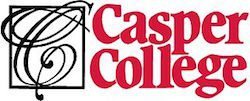
Casper, Wyoming is the home of this two-year college that was established in 1945. The college is often called just Casper. It was the first junior college in Wyoming, and classes were first held in empty classrooms at Natrona County High School. Former Vice President Dick Cheney graduated from Natrona County High School in 1959. Casper didn’t get its own campus started until ten years later when construction commenced on the main campus. The campus now spans more than 200 acres and has 28 buildings. There are 3,626 students enrolled at Casper with 41% of them participating to some degree in the available online learning options. All of the online education programs offered at Casper College are fully accredited by the Higher Learning Commission of the North Central Association of Colleges and Schools. Also, many of their programs ranging from addictionology, to dance, business, radiography, and many more have received special accreditation from bodies that cater to that particular field.
Casper College is divided into five schools. These are The School of Business and Industry; The School of Fine Arts and Humanities; The School of Health Science; The School of Science and; The School of Social and Behavioral Science. Through these, there are a total of 50 academic majors and 30 technical options available to students regardless of residency. Casper offers two varieties of distance-learning. There are hybrid degrees and certificates that require some on-campus interaction. However, 70% or more of the coursework is available online, and Casper allows these classes to be taken at another institution as long as it is accredited and fulfills their transfer requirements. For the fully online degree programs, no on-campus visits are required, but they do follow a set schedule and are not self-paced. Currently, there are degree and certificate options to be completed entirely online in the following fields Accounting, Agri-business, Agriculture, Early Childhood Education, Fire Science, General Studies, Health Science, Hospitality and Tourism Management, Office Management, Psychology, and Retail Management and Merchandising.
Casper Website: https://www.caspercollege.edu/
Student Financial Aid Rate: 93.0%
Freshman Retention Rate: 65.0%
Graduation Rate: 32.0%
Final Score: 190.0/300
26: Nebraska College of Technical Agriculture
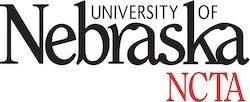
Nebraska College of Technical Agriculture is part of the University of Nebraska System. It is located in Curtis, Nebraska is a land-grant community college and was founded in 1965 although it has roots all the way back in 1913. The school that would go on to become NCTA was a high school called the Nebraska School of Agriculture. In 1946, the high school changed its name to the University of Nebraska School of Agriculture. When a former superintendent became a Senator in the Nebraska Legislature in 1965, there was quickly a bill created to transform the school into something like a junior college. It happened immediately because the bill passed with ease. The name became the University of Nebraska School of Technical Agriculture, and its first 31 students enrolled that fall. It grew over time and became the University of Nebraska – Nebraska College of Technical Agriculture in 1994.
NCTA is very decorated for a community college. The college’s Veterinary Technology Systems program was among the first to be accredited by the American Veterinary Medical Association. This program has also ranked among the Top Ten Colleges for Large Animal Veterinary Technicians by VetTechColleges.Com. At a national level, Aspen Institute, WalletHub.Com, and Community College Weekly has recognized the college for its quality, affordability, and programs offered. NCTA offers a variety of uniquely specialized courses online as well as some general courses. Due to NTCA’s special partnership with the University of Nebraska-Lincoln College of Agriculture Sciences and Natural Resources, students are also uniquely eligible for transfer opportunities.
NCTA Website: https://ncta.unl.edu/
Student Financial Aid Rate: 86.0%
Freshman Retention Rate: 64.0%
Graduation Rate: 43.0%
Final Score: 193.0/300
25: Central Community College
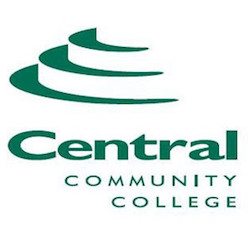
Central Community College is a community college or two-year college, that has three campuses in Nebraska. They’re located in Columbus, Grand Island, and Hastings. Central Community College, or CCC, also have three learning centers in Lexington, Kearney, and Holdrege. CCC was founded in 1966 as Central Nebraska Technical College and established its first campus in Hastings using some of the former buildings belonging to the Naval Ammunition Depot. CCC at Columbus opened in 1969 as Platte Junior College, followed shortly by CCC Grand Island in 1976. The college it is today’s administration formed in 1974. Central Nebraska Technical College was the first multi-county vocational school in Nebraska, and Platte Junior College was the first county-supported one. Now that they’ve all merged into one entity, they serve 6,316 students. CCC is fully accredited by the Higher Learning Commission and has been since the 80’s. The nursing and occupational therapy programs are also specially accredited.
Currently, Central Community College offers online Associate of Applied Science degree programs in Business Administration, Business Technology, Health Information Technology, Information Technology & Systems, and Quality Technology. All of these degrees can be used to enter the professional world, or simply as the foundation of your educational career. There are another 17 certificate programs that are also available online. The courses that comprise these programs are offered entirely on the web and require no on-campus time at all. The courses follow the same schedule alongside the traditional programs, but they’re still delivered asynchronously so that your classes and coursework are available any time of day.
CCC Website: https://www.cccneb.edu/Home/
Student Financial Aid Rate: 88.0%
Freshman Retention Rate: 68.0%
Graduation Rate: 38.0%
Final Score: 194.0/300
24: Renton Technical College

Renton Technical College is a two-year institution located in Renton, Washington, which is part of the Seattle Metro area. It was created as a war production school in 1942 and became a state-funded vocational school after the war ended. It continued to spread out over the years as new construction, remodels, and expansions took place. In 1991, Renton Technical College or Renton Tech became a technical college rather than vocational school. The State Board for Community and Technical Colleges took over governance and allowed Renton Tech to begin granting Associates degrees and certificates. Renton Tech is accredited by the Northwest Commission on Colleges and Universities.
Renton Technical College offers a large selection of programs in an effort to provide their community with valuable skills and viable credentials as they seek work. There are 52 career training programs with 90 different certificate options and 27 Apprenticeships. The college has 37 Associates degree options it offers on its own, 16 Associates transfer degree options, 3 Direct Transfer Agreements, and even one Bachelors degree. The Bachelors degree is one of their several fully-online programs, and it’s in Application Development. There are two Associates degree programs online, one in legal assisting and the other is a transfer degree in early childhood education. You can also get certified as a Nursing Assistant or Office Assistant online.
Renton Tech Website: https://rtc.edu/
Student Financial Aid Rate: 67.0%
Freshman Retention Rate: 61.0%
Graduation Rate: 66.0%
Final Score: 194.0/300
23: Northern Maine Community College
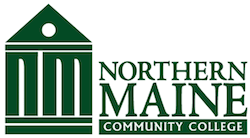
Northern Maine Community College was founded in 1961 where the Presque Isle Air Force Base used to be, and it began taking students in 1963. The campus, in Presque Isle, Maine is only 87 acres. There are 880 students currently enrolled across 37 different programs of study that will lead to either a degree or certificate. NMCC, as the school is abbreviated, boasts that 90% of their graduates are employed and doing a job relevant to their degree or are continuing their education. The college also offers a training option that employers can become involved with, so their employees would all be trained through the school. It hosts this program as part of their commitment to strengthening the economy in the surrounding community and beyond.
NMCC is one of seven member institutions of the Maine Community College System, as well as the American Association of Community Colleges, the American Council on Education and the Maine Higher Education Council. It is accredited by New England Association of Schools and Colleges, Inc. through its Commission on Institutions of Higher Education, and it also has specialized programmatic accreditation in both business technology and nursing. The college is divided into four main departments, the Arts & Sciences Department, the Business Technology Department, the Nursing & Allied Health Department, and the Trade & Technical Occupations department. The college offers a variety of online courses and programs to its students through these departments, all of which are fully online and asynchronous.
NMCC Website: https://www.nmcc.edu/
Student Financial Aid Rate: 95.0%
Freshman Retention Rate: 66.0%
Graduation Rate: 35.0%
Final Score: 196.0/300
22: Patrick Henry Community College
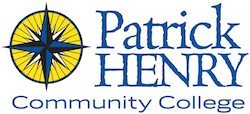
Patrick Henry Community College is a community college in Henry County or Martinsville, Virginia. PHCC was originally part of the University of Virginia’s School of General Studies at its inception in 1962. It became an independent institution just two years after that. At that time, it was operating out of a building that used to belong to Northside Elementary School. It didn’t have any of its own buildings until 1969 when the first building of the main campus was completed. PHCC has one of the most diverse student bodies among all other community colleges or similar institutions. Their 2,900 students range from 15 to 95, and hail from several different states and 11 different countries. There are over 100 different scholarships offered through the PHCC Foundation.
PHCC is accredited by the Southern Association of Colleges and Schools Commission on Colleges allowing them to award Associates degrees and other two-year certifications. Some of their programs are non-traditional, such as allowing students to earn industry-recognized certifications and hosting developmental and transitional programs. The distance-learning programs provided by PHCC enable students to take just a class or two, all the way up to their entire degree online. The college also offers Shared Services Distance Learning (SSDL) classes through the Northern Virginia Community College’s Extended Learning Institute. Students register and pay at Patrick Henry Community College, but will have access to unique online courses because of the school’s SSDL participation.
PHCC Website: https://www.patrickhenry.edu/
Student Financial Aid Rate: 81.0%
Freshman Retention Rate: 65.0%
Graduation Rate: 50.0%
Final Score: 196.0/300
21: Lake Region State College

Lake Region State College is located in Devils Lake, North Dakota. It was originally known as Devils Lake Junior College and Business School. The name evolved over time as the college evolved, it even spent a little over a decade as part of the North Dakota University System as a branch campus of the University of North Dakota in Grand Forks. LRSC became what it is today in the year 1999. It received its initial accreditation from the Higher Learning Commission in 1973 and has maintained it since then. The college is also a member of the American Association of Community Colleges. There are 1,947 students at Lake Region State College, each participating in one of the 16 Associates degree programs or 10 certificate programs available.
LRSC Online Campus is part of the North Dakota University System Online, and it holds the same accreditation as the physical campus does. The online campus has 6 fully online and self-paced programs that it provides students with at the moment. As the college continues to grow, more online programs will become available. Associate degrees online can be earned in the fields of Early Childhood Education, Accounting & Business Administration, Liberal Arts, Fitness Training, Law Enforcement, and Speech Language Pathology.
LRSC Website: https://www.lrsc.edu/
Student Financial Aid Rate: 87.0%
Freshman Retention Rate: 63.0%
Graduation Rate: 47.0%
Final Score: 197.0/300
20: College of Eastern Idaho
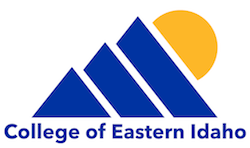
The College of Eastern Idaho is a community college in Idaho Falls, Idaho. At first, when it was created in 1969, it was called the Eastern Idaho Vocational Technical School. After becoming a technical college, the name was changed to Eastern Idaho Technical College. In 2017, the community voted to establish a community college district, which allowed this institution to become a community college and take its new title, the College of Eastern Idaho. The school offers adult basic education, GED testing, and workforce training as well as courses in each of its four divisions. The divisions are Business, Office, & Technology; Health Professions; Trades & Industry and; General Education. There are 20 different programs of study that are offered by the College of Eastern Idaho. Some of those programs lead to a certificate, and many of them lead to an Associates degree.
The College of Eastern Idaho is accredited by the Northwest Commission on Colleges and Universities, and the school offers degrees with transferable credits so that students who wish to continue their education can do so without worry. CEI has hybrid courses, online courses, and workforce training online. The hybrid courses will have some portion of the course presented in a traditional face-to-face format, and the rest will occur online. The online courses are entirely online, but only some of them are self-paced; the rest of the classes will require you to be logged in for lectures at the same time as your entire class, or your student group called a cohort.
CEI Website: https://www.eitc.edu/
Student Financial Aid Rate: 72.0%
Freshman Retention Rate: 69.0%
Graduation Rate: 57.0%
Final Score: 198.0/300
19: Northeast Mississippi Community College

Northeast Mississippi Community College is based in Booneville, Mississippi and is generally shortened to NEMCC. It is one of fifteen community colleges in the state, and it was founded in 1948. Canadian physician and political figure Dr. William Henry Sullivan sold the land to the state and expressed that he wanted a college built there, and it wasn’t long until the Northeast Mississippi Junior College came to be. At the time it was mostly seen as an agricultural school; however, its distinction as such was short lived as it was dropped just a year later. The main campus sits on that original plot in Booneville, and there are extension centers in New Albany and Corinth, Mississippi. The school finally became NEMCC in 1987. Today, the student body is comprised of almost 4,000 students pursuing any one of the 83 available programs.
NEMCC serves five counties, providing the community with career, technical, and transfer courses that are delivered flexibly during the day, night, and weekend. NEMCC has several programmatic accreditations and is wholly accredited by the Southern Association of Colleges and Schools to award students with Associates degrees and professional certificates. Mississippi State University and the University of Mississippi offer upper-division courses at all three of the NEMCC campuses. 79% of the attending students are full-time, and almost 70% of them are taking at least one course by distance. The school participates in the Mississippi Virtual Community College, which is an active partnership with other community colleges throughout Mississippi and the State Board for Community and Junior Colleges. Because of this, students can access a broader selection of courses in addition to the already generous 20 programs offered solely by NEMCC that are available for completion 100% online.
NEMCC Website: https://www.nemcc.edu/
Student Financial Aid Rate: 99.0%
Freshman Retention Rate: 66.0%
Graduation Rate: 33.0%
Final Score: 198.0/300
18: Wisconsin Indianhead Technical College
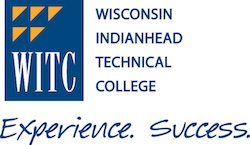
Wisconsin Indianhead Technical College was founded in 1912 after the Wisconsin Legislature mandated that every city with a population greater than 6,000 have a vocational school. Superior became the first city in the area and second in Wisconsin overall where a technical school was founded. Additional schools were opened in Ashland in 1921 and Rice Lake in 1941. This trend continued, and the Legislature required that school districts were implemented. In 1972, two districts comprised of 12 counties in total merged together and formed the Wisconsin Indianhead Technical and Adult Education District. 1988 is when Wisconsin Indianhead Vocational, Technical, and Adult Education District became what it currently is, Wisconsin Indianhead Technical College or WITC. Today, WITC has campuses in Ashland, New Richmond, Rice Lake, and Superior, Washington. There are two more branches in Hayward and Ladysmith, a learning center in Washburn County, and the administrative offices in Shell Lake. Most of their 2,944 students are part-time.
WITC is a member of and is accredited by the Higher Learning Commission. Over 50 programs are currently available for students, and 11 of them have specific programmatic accreditation or special licensure. WITC offers a wide array of online courses, over 50% of all students are taking at least one online course. However, there are only 7 actual programs that are currently available. These are a Web & Software Developer Program, a Health Information Technology Program, a Child Care Services Program, an Early Childhood Education Program, an Administrative Professional Program, a Medical Coding Program, and an Accounting Program. These programs are all offered in an asynchronous format with the exception of the Child Care Services Program, which is based on a cohort model and presented synchronously.
WITC Website: https://www.witc.edu/
Student Financial Aid Rate: 78.0%
Freshman Retention Rate: 65.0%
Graduation Rate: 55.0%
Final Score: 198.0/300
17: East Mississippi Community College

East Mississippi Community College or EMCC is a community college in Scooba, Mississippi. It was founded in 1927 on the principle that community colleges in Mississippi are originally designed to make education accessible to even the more rural areas of the state. EMCC began as Kemper County Agricultural High School in 1912 and now enrolls 3,905 students through seven locations and online in partnership with the Mississippi Virtual Community College. Programs available through EMCC vary widely. There are career-technical and workforce training options, professional certifications, and academic programs that prepare students equally for entering their career field or proceeding to a four-year institution to further their education. Career-technical programs are only available in a traditional on-campus format, but they offer programs in 28 different career fields that will have students job-ready upon completion.
The online or eLearning department of EMCC functions entirely through the Mississippi Virtual Community College. Because of this, all of the online degree programs students can choose from at the time of writing are hybrid degree programs, in which a portion of them must be completed on campus. The MVCC program is operated by the Mississippi Community College Board and allows students to take courses through this platform that may not be offered at the school in which they’re enrolled and pursuing a degree, which is an important opportunity for students in Mississippi because it’s estimated that about 75% of all freshmen are enrolled at a community college. These credits are guaranteed to be transferable to any other participant in MVCC, and to any school affiliated with the MCCB. East Mississippi Community College is currently accredited by the Southern Association of Colleges and Schools Commission on Colleges.
EMCC Website: https://www.eastms.edu/Pages/Home.aspx
Student Financial Aid Rate: 86.0%
Freshman Retention Rate: 71.0%
Graduation Rate: 44.0%
Final Score: 201.0/300
16: West Kentucky Community and Technical College

West Kentucky Community and Technical College or WKCTC is a part of the Kentucky Community and Technical College System and is currently accredited by the Southern Association of Colleges and Schools. Programs such as Nursing, Physical Therapy, Dental Assisting, and Radiology all carry additional accreditation by organizations that cater specifically to those fields. WKCTC was only established in 2003. It is located in Paducah, Kentucky and is the result of a merger of Paducah Community College and West Kentucky Technical College. Though it is very young in comparison to similar institutions, the Aspen Institute has included it among its Top 10 Community College list three times, and twice designated it as a Finalist With Distinction because of its impressive job training and continuing education opportunities, high completion and transfer rates, and the healthy employment rate among graduates.
WKCTC has a total enrollment of 6,065 students, and most of them are part-time, but only 45% of them participate in some form of distance-learning orchestrated by the college. The variety of online degree programs available are all in fields relevant to the job market today. There are two approaches that WKCTC takes to online learning. One of these is the Learn-By-Term model in which classes are 16 weeks, or last for a semester. There is also their Learn-On-Demand option, which tests you at the beginning of the course to see what you truly need to learn and what concepts you’ve already mastered. These courses are self-paced and vary from 6 weeks to 15 weeks in length. There are 17 Associates degrees and 38 certificates available with Learn-On-Demand, and there are eight Associates degrees and seven certificates available through the Learn-By-Term format. Both options have programs in fields like Criminal Justice, Marine Technology, and more.
WKCTC Website: https://westkentucky.kctcs.edu/
Student Financial Aid Rate: 95.0%
Freshman Retention Rate: 64.0%
Graduation Rate: 43.0%
Final Score: 202.0/300
15: Western Wyoming Community College
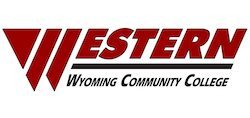
Western Wyoming Community College in Rock Springs, Wyoming is often referred to as just WWCC. It is a standard two-year college offering Associates degrees and certificates, but the school is partnered with the University of Wyoming to provide their students with the opportunity to earn a few different Bachelors degrees as well. WWCC was the fifth community college that came to be in Wyoming, and it was founded in 1959. In its inaugural year, five faculty taught evening classes to 40 students. The school has expanded in a big way since then. In 1966 a building program with a price tag of $1,822,000 began, and an additional $1,780,000 in 1973, and yet again in 1981, another building project was approved that cost more than $63,000,000. Now the campus has several student commons areas, classrooms and labs, offices, Children’s Center, studios, chemistry lab, and a theatre; there are also six residence halls.
WWCC has programs in Humanities and Fine Arts, Social Science, Science and Mathematics, Business, Technology and Industry, and Health Science. In all, there are 76 different degree and certificate programs for students to choose from, whether they plan on pursuing higher education or entering right into the workforce. Online degree programs at WWCC are offered in a schedule format, but not necessarily synchronous. There are no mandatory login times, but students must complete a set amount of work every week. The programs available fully online with no on-campus visits are certificates in Accounting, Digital Design, Emergency Management, and Website Development. Associates degree programs provided entirely online are programs in Criminal Justice, Social Science, Social Work, Sociology, Office Information Systems, Accounting, Business Administration, and Computer Information Systems.
WWCC Website: https://www.westernwyoming.edu/
Student Financial Aid Rate: 98.0%
Freshman Retention Rate: 66.0%
Graduation Rate: 38.0%
Final Score: 202.0/300
14: Rend Lake College
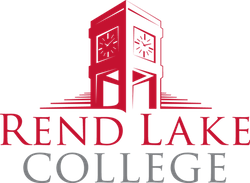
Rend Lake College is one of almost 50 schools that all make up the Illinois Community College System. Rend Lake or RLC is in Ina, Illinois and was founded in 1955. At that time, it was called Mt. Vernon Community College and was opened with the goal of providing high students with some form of post-secondary education. Even though the Junior College Act of 1965 transformed the school into Rend Lake College in 1966, Mt. Vernon Township High School and its faculty still operated as the college when classes began in 1967. The groundbreaking ceremony for construction of today’s campus was held in the Spring of 1969 on the same day that the college received accreditation from the North Central Association of Colleges and Schools. By the following fall, the first handful of buildings were ready to host students. RLC was the first community college in Illinois to complete construction of its facilities. The college now has several learning centers, a Coal Mining Training Center, and two satellites at local correctional facilities. The main campus is only 350 acres and is pretty rural. There is no student housing. 52% of the 2,489 students are part-time, and only 24% of them take advantage of online courses or programs.
There are several online classes available at Rend Lake College for students to take advantage of, creating their own hybrid programs with the course selection available in order to make the most out of their time and their education. All online students must take a course called ONE 1500 which serves as a tour of the Blackboard platform RLC uses for course delivery and helps students create strategies for success in this style of learning. The classes coincide with the traditional semesters, and students are required to complete a set amount of work each week or otherwise, they will be considered behind. RLC also gives students full access to financial aid advisors, an electronic library, and more. The only degree programs offered entirely online from RLC are an A.A. or A.A.S. in Business, along with certificate programs for Business Management and Business Management II. Courses cover a broad range of relevant topics, from accounting to marketing. RLC explains that the majority of people who complete this degree continue their education at least the Bachelors level, and may even continue up through the Masters level to complete their MBA.
RLC Website: https://www.rlc.edu/
Student Financial Aid Rate: 82.0%
Freshman Retention Rate: 70.0%
Graduation Rate: 51.0%
Final Score: 203.0/300
13: Eastern Wyoming College
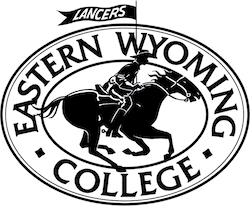
Eastern Wyoming College is headquartered in Torrington, Wyoming, and has additional locations in Platte, Niobrara, Converse, Weston, and Crook counties. Sometimes shortened to EWC, this college was founded in 1948. EWC was accredited by the North Central Association of Colleges and Schools which was absorbed by the Higher Learning Commission in 2014, so the HLC is the current accreditor of the school. In addition to that, the college is also affiliated with the American Veterinary Medical Association and the American Welding Society. Despite those affiliations, there are no additional specialized accreditations attached to any of their programs.
EWC has a total enrollment of 1,604 students. Most of the students are native to Wyoming, but there are plenty of students from other states, and even a few from foreign countries. 63% of students at EWC at part-time. The school boasts a “robust distance learning program, ” but only 24% of students are enrolled in at least one distance course. Since Eastern Wyoming College is a community college, it offers two-year degrees and certificate programs. There are 39 different Associates level degrees available, and certificates in 15 various areas. Of those 39 Associates degree programs, 4 of them are offered entirely online along with just one certificate program. These are A.A. degrees in Criminal Justice, and Elementary Education. Students have their choice of A.A. or A.S. in Interdisciplinary Studies. The Business Administration Program is for an A.A.S. The certificate program is in Child Development. The early childhood education courses are organized with the University of Wyoming and Chadron State College for credit transfers. Some of the online programs are offered asynchronously, and some synchronously, but none of them require any face-to-face instruction.
EWC Website: https://ewc.wy.edu/
Student Financial Aid Rate: 92.0%
Freshman Retention Rate: 67.0%
Graduation Rate: 45.0%
Final Score: 204.0/300
12: Vermont Technical College

Vermont Technical College is one of five colleges that make up the Vermont State Colleges. It was founded in 1866 and operates two campuses in Randolph Center and Williston, Vermont. The main campus is Randolph Center, and it’s a rural 554-acre location. There are 1,623 students enrolled. It has received recognition multiple times from U.S. News & World Report. And College Scorecard, which is put out by the United States Department of Education, ranked the school for having the 3rd lowest student debt after graduation in Vermont, 1st in percent earnings after graduation above high school, and 5th for the highest salaries after graduation in Vermont. It’s easy to see why this small school has stuck around for nearly 200 years!
Unlike most schools on this list, Vermont Technical College offers degrees at the Associates, Bachelors, and Masters levels, including some professional certificates. There are more than 45 different programs from which students can choose. The majority of the online courses offered at VTC are through their Continuing Education & Workforce Development department. Outside of those options, there are a handful of Bachelors degree programs available for online students. These include an Applied Business Management, Bachelor of Science, a hybrid Manufacturing Engineering Technology, Bachelor of Science, a Bachelor of Science in Nursing, and a Dental Hygiene, Bachelor of Science. There is also a small selection of professional certificate programs that can be completed online.
VTC Website: https://www.vtc.edu/
Student Financial Aid Rate: 87.0%
Freshman Retention Rate: 70.0%
Graduation Rate: 48.0%
Final Score: 205.0/300
11: North Dakota State College of Science
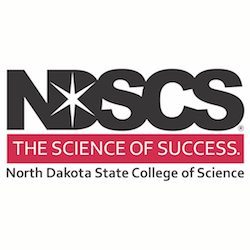
The North Dakota State College of Science was founded in 1903, and it is one of the oldest public two-year colleges in the country. The main campus is in Wahpeton, North Dakota and it is part of the North Dakota University System. The Arts and Science Division was the first to be organized in 1905 and is now the Arts, Science, and Business Division. The other academic divisions into which the school is organized are the Technologies and Services Division; the College Outreach Division and; the Extended Learning Division. There are 14 career clusters the school focuses its programs around, and there are around 115 different programs offered. These programs are at the Associates and certificate levels, and there is also an abundance of transfer degree options. North Dakota State College of Science is usually shortened to NDSCS, and it has a campus in Fargo, North Dakota.
There are 3,127 students enrolled at NDSCS, and unlike many other community colleges, it is highly residential. This is because the school strives to create a university atmosphere for its students by having several residence halls, intercollegiate and intramural athletics, music and theater groups, and 35 affiliated clubs and organizations. Even with the rich atmosphere, half of their student body are enrolled only in distance education programs, and another 17% take part in some aspect of online education through the college. The two-year degrees NDSCS offers are in the fields of Business Management, Emergency Medical Services, English and Humanities, Health Information, Information and Communications Technology, Liberal Arts, Pharmacy, and Technical Studies. Certificates in Pharmacy and EMS are also available to online students.
NDSCS Website: https://www.ndscs.edu/
Student Financial Aid Rate: 90.0%
Freshman Retention Rate: 70.0%
Graduation Rate: 50.0%
Final Score: 210.0/300
10: SUNY College of Technology at Delhi
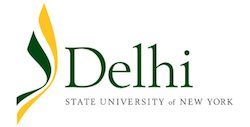
The State University of New York at Delhi is one of the technical colleges in the State University of New York System; it’s often referred to as SUNY Delhi or Delhi State College. Fittingly, this college is located in the Town of Delhi, New York. There are over 3,000 students who attend SUNY Delhi. When it was founded in 1913, it was a small farming school. In the 20’s, curriculum expanded to include general education, and then more major studies started emerging in the curriculum in the 60’s. Now, there are three main academic divisions which are Applied Sciences & Technology; Business & Hospitality and; Liberal Arts & Sciences. Through these divisions, there are more than 60 programmatic offerings that culminate in one-year certificates, two-year Associates degrees, and in select areas, four-year Bachelors degrees. SUNY Delhi was recently approved to initiate its first graduate program, which is a Master of Science in Nursing.
U.S. News & World Report ranked SUNY Delhi among the Top 50 Baccalaureate Colleges in 2010’s iteration of their annual “America’s Best Colleges” publication. The college is accredited by the Middle States Commission on Higher Education and has further accreditation from reputable agencies such as the American Culinary Federation, American Veterinary Medical Association, National League for Nursing Accreditation Commission, and more. At the undergraduate level, 74% of students are full-time, and only 22% participate in distance education; conversely, at the graduate level, 86% of students are part-time, but 100% of them are distance-learners. The online undergraduate degree programs that are currently offered fully online to students at SUNY Delhi are an AOS in Electric Construction and Management, a BBA in Hospitality Management, a BS in Criminal Justice, and an ACEN accredited RN to BSN Program. There are two at the graduate level, a Master of Science in Nursing Administration and a Master of Science in Nursing Education.
SUNY Delhi Website: https://www.delhi.edu/
Student Financial Aid Rate: 96.0%
Freshman Retention Rate: 73.0%
Graduation Rate: 41.0%
Final Score: 210.0/300
9: Northeast Community College – Norfolk
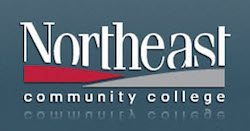
NECC is how Northeast Community College is usually abbreviated. This community college is the main campus in a four college system. The main campus is in Norfolk, Nebraska. The additional three locations are O’Neill, South Sioux City, and West Point, Nebraska. NECC was established by the merging of Northeastern Nebraska College and Northeast Nebraska Technical College in order to form a more comprehensive institution. Today, it is the only community college in the state that offers one-and two-year vocational, liberal arts, and adult education programs all under one roof. NECC offers almost 100 different degree programs at the certificate and Associates levels, all of which are covered by their institutional accreditation by the Higher Learning Commission. There are a total of 5,075 students enrolled.
The majority of the college’s 5,000+ students are part-time, and only 37% participate in the online education opportunities provided to them. Only 20 programs are currently offered online at Northeast Community College. One of them is a General Business Diploma, and there are two certificate programs in Business and Insurance Services, and Food Service and Dietary Management. There are a few partner programs that are provided in conjunction with other area schools. You can obtain an Associate of Applied Science in Business with a concentration in International Business, Insurance Services, or you can take the General approach. There are several other programs in a variety of fields that are 100% online degree programs, such as Criminal Justice, Accounting, Agriculture, Behavioral Science, Business Administration, Education, and Social Science.
NECC Website: https://northeast.edu/
Student Financial Aid Rate: 88.0%
Freshman Retention Rate: 70.0%
Graduation Rate: 53.0%
Final Score: 211.0/300
8: Olney Central College
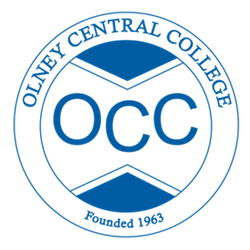
Olney Central College or OCC is a community college located in Olney, Illinois. It is part of the Illinois Eastern Community Colleges organization. It is accredited by the Higher Learning Commission of North Central Association of Colleges and Secondary Schools authorizing OCC to confer eligible students with a one-year technical certificate or two-year degree. OCC also has a partnership with Franklin University that allows them to have online Bachelors degree programs available for students. The Illinois Eastern Community Colleges organization is made up of four tax-supported schools, and this support allows OCC and other members to strive for affordability. In addition to an affordable tuition rate, 99% of all 1,198 students receive financial aid.
OCC has almost 50 different programs available for its students, for degrees, certifications, and to transfer to four-year institutions. Students are in control of their education every step of the way in order to orchestrate their ideal path into the professional world. 58% of students participate in their chosen program on a part-time basis, and only 34% take at least one course at a distance. As far as distance-learning goes, OCC is continuously expanding upon their capabilities. Students can earn three certificates entirely online with no on-campus visits, and five degrees. There are additional online degree options at the Bachelors level through Franklin College’s cooperation with Olney Central College. Students can pursue an A.S.A. transfer degree, an A.G.S. transfer degree, or an A.S. transfer degree to prepare them for enrollment at a four-year university. The Accounting and Computing and Medical Office Assistant programs are both online asynchronous degree options that will allow students to either continue their education or enter the workforce. Certificate programs that serve the specific purpose of putting students into the workforce upon completion that can be taken at a distance are Medical Transcription, or Sales.
OCC Website:
Student Financial Aid Rate: 99.0%
Freshman Retention Rate: 63.0%
Graduation Rate: 49.0%
Final Score: 211.0/300
7: Pennsylvania College of Technology
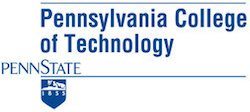
The Pennsylvania College of Technology is a Pennsylvania State University affiliate located in Williamsport, Pennsylvania. It’s officially designated as an applied technology college and offers certificate, Associates, and baccalaureate degree programs in over 100 different areas of study. Its official nickname is Penn College and is often locally called Penn Tech. The college was founded in 1914 as an extension of an existing high school for the purpose of providing students with a post-secondary education. As the needs of the community adapted, it became the Williamsport Technical Institute. The school was extremely dedicated to veteran success throughout World War II and the subsequent years. In 1965 the original technical institute was succeeded by the Williamsport Area Community College. In 1989, The Pennsylvania State University entered into an affiliate agreement with the college, which is how it received its current name. Penn Tech is the common nickname of the college because it’s reminiscent of the university’s, which is Penn State.
Penn Tech is divided into six schools, which are the School of Business & Hospitality; the School of Construction & Design Technologies; the School of Health Sciences; the School of Industrial, Computing & Engineering Technologies; the School of Sciences, Humanities & Visual Communications and; the School of Transportation & Natural Resources Technologies. These six schools enroll 5,446 students, of which the vast majority are in-state and full-time students. 21% of Penn Tech students participate in some form of distance education. The benefit to participating in any one of the 9 available online degree programs is that online students pay in-state tuition regardless of residency. They also have access to online tutoring, textbook purchase, and personal interaction with faculty. Upon completion of your degree program, you can also participate in Commencement. There is an undergraduate degree in Business Management and graduate degrees in Applied Health Studies, Applied Management, Automotive Technology Management, Business Administration with a Management Concentration, Dental Hygiene, Emergency Management Technology, Health Information Management, and Nursing. All of these programs are delivered in a self-paced format and have no on campus requirements.
Penn College Website: https://www.pct.edu/
Student Financial Aid Rate: 87.0%
Freshman Retention Rate: 78.0%
Graduation Rate: 46.0%
Final Score: 211.0/300
6: Southern Arkansas University Tech

Southwest Technical Institute was founded in 1967 as an answer to a growing need for a workforce as the Highland Industrial Park expanded. In 1975, Southern Arkansas University absorbed the original institute, and it was renamed Southern Arkansas University Tech. It is often shortened to SAU Tech. The main campus is located in Camden, Arkansas. SAU Tech has independent accreditation from its parent university, and that accreditation is through the Higher Learning Commission of the North Central Association of Colleges and Schools at the institutional level. The Aviation Maintenance Technology, Firefighting, and Nursing programs also have programmatic accreditation from reputable agencies in the field. This certification authorizes SAU Tech to award professional certificates and Associates degrees. The school also has partnerships with Columbia College, Columbia Southern University, Henderson State University, Southern Arkansas University, and the University of Arkansas-Fort Smith; this partnership allows students to seamlessly transfer into a variety of programs that can be completed online or on campus.
SAU Tech offers 42 different degree programs in a diverse selection of fields. Their 780 students are predominantly full-time and most of them are learning in a traditional on-campus format. SAU Tech offers 4 hybrid programs, in which 75% or greater of all course material is to be completed online, and 9 programs that are 100% online. A few of the online programs, such as the Fire Science Management and Emergency Response Program and the Teacher Education Program are part of the transfer program with Southern Arkansas University. Additionally, the Teacher Education Program is the one of two hybrid degree program students can take at SAU Tech, and offers transfer to Henderson State University. The other is in Office Management. There are hybrid certificate programs as well in Health Sciences, Paraprofessional Education, and Entrepreneurship; and fully-online ones in General Studies, Medical Transcription, and Office Software. The degree programs offered entirely online that don’t participate in any of the university partnerships are a General Education A.A., an A.S. in Business Administration, and several others.
SAU Tech Website: https://www.sautech.edu/
Student Financial Aid Rate: 89.0%
Freshman Retention Rate: 72.0%
Graduation Rate: 50.0%
Final Score: 211.0/300
5: Alexandria Technical and Community College

Alexandria Technical and Community College is part of the Minnesota State Colleges and Universities System. It’s located in Alexandria, Minnesota and was founded in 1961. The school opened with three programs and 21 students at the request of the school district, with an initial focus on Carpentry, Farm Equipment Mechanics, and Machine Shop. The name changed several times as the school transitioned. Instead of being part of the local district and a vocational school, it became a state college that was more comprehensive in nature. The college is most well-known for having an exemplary placement rate of 90%, and the highest graduation rate among two-year public colleges in Minnesota. It was also the first two-year college in the state that received accreditation from the Higher Learning Commission. That accreditation allows them to award professional certificates and two-year degrees.
There are several different types of programs offered at Alexandria Technical and Community College or ATCC. You can pursue a degree in a classroom setting or via the web, and you can use choose the program that fits best for you be it a professional certification, a two-year degree that will put you into a career, or a foundation for a four-year education and beyond. You can get certified as a Medical Coding Specialist, or Speech-Language Pathology Assistant in a year or less from the comfort of your home. There are also fully-online asynchronous Associates degree programs in a variety of fields. Business Administration, Computer Information Systems, Human Services Practitioner, Individualized Studies, Legal Administrative Assistant, Liberal Arts & Sciences, Medical Administrative Specialist, Medical Coding Specialist, Paralegal, and Speech-Language Pathology Assistant are all of the distance-learning programs currently available at ATCC.
ATCC Website: https://www.alextech.edu/
Student Financial Aid Rate: 86.0%
Freshman Retention Rate: 71.0%
Graduation Rate: 61.0%
Final Score: 218.0/300
4: Lincoln Trail College
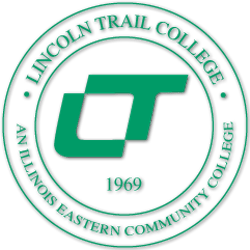
Lincoln Trail College is the second school on this list that is a member of the Illinois Eastern Community Colleges organization. It’s located in Robinson, Illinois and was founded in 1969. It received its original accreditation from the Higher Learning Commission that year and has upheld that accreditation ever since. The school is authorized to award students with certificates and two-year degrees. There are 25 different programs that students can enroll in. There are currently 934 students enrolled, 57% of them participate at a part-time frequency, and 76% of them are taking their classes solely in a traditional format. LTC and the other schools that are part of the Illinois Eastern Community Colleges organization serve an essential purpose in the very rural community they’re based in.
LTC’s mission is to “deliver exceptional education and services to improve the lives of our students and to strengthen our communities.” They do this through their open enrollment policy, meaning that 100% of all applicants are accepted and 100% of their student body is receiving financial aid. Because of the extensive financial assistance opportunities, the average net price is $1,251 per academic year. LTC allows students to obtain a relevant education that can take them to work right away, allowing them to financially support themselves and to bolster the economy, all without breaking the bank. All of the IECC schools offer the same online degree options. That includes two certificate programs in Medical Transcription and Sales; transfer degrees at the A.S.A., A.G.S., and A.S. levels and; A.A.S degrees in Accounting and Computing and Medical Office Assisting.
LTC Website:
Student Financial Aid Rate: 100.0%
Freshman Retention Rate: 63.0%
Graduation Rate: 55.0%
Final Score: 218.0/300
3: Penn State Beaver

Penn State Beaver is one of fourteen two-year campuses that make up the University College at Pennsylvania State University. The campus is in Center Township, Pennsylvania. It is on land that used to hold the Hartenbach farm. The campus grounds served a myriad of purposes before it was donated to Penn State in 1965. That fall semester, Penn State Beaver took its inaugural class of 97 students. Today, there are 726 students currently enrolled. Penn State Beaver is technically a four-year public college; however, the bulk of their programs (almost 200) serves as the first two years of baccalaureate majors that are complete at Penn State. In addition to those foundation programs, Penn State Beaver independently offers ten undergraduate degrees, and one graduate degree, which is a Masters degree in education.
Like many community colleges, Penn State Beaver offers workforce training, adult education, and professional development options. There are distance-learning programs in Communications, Cyber Security, Project Management, and many other fields that are offered at certificate levels, and undergraduate levels. Most of the programs available online through Penn State Beaver are synchronous, and a few of them are presented in a blended format that would require some face-to-face instruction. All programs are covered under the same accreditation as Pennsylvania State University, which is through the Middle States Commission on Higher Education. 87% of students are completing their programs at a full-time rate, but only 29% of them are enrolled in some form of online courses or programs through Penn State Beaver. Pennsylvania State University reports that 50% of their students begin at one of the several two-year colleges that they maintain.
Beaver Website: https://beaver.psu.edu
Student Financial Aid Rate: 93.0%
Freshman Retention Rate: 78.0%
Graduation Rate: 47.0%
Final Score: 218.0/300
2: Marion Technical College
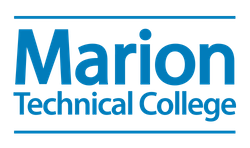
Marion Technical College is a public technical college in Marion, Ohio, not to be confused with the community college by the same name in Ocala, Florida. It’s often called MTC for short. Since its inception in 1970, MTC has awarded more than 5,000 Associates degrees. There are 2,782 students enrolled, and they can choose from 30 different degree programs in six areas of study. The way the college divides its programs is into the following six categories: Business, Information Technology, Engineering, Health, Public Service, and Arts & Sciences. All the programs fall under the institutional accreditation of the Higher Learning Commission of the North Central Association of Colleges and Schools. Several of the programs offered in physical and occupational therapy, nursing, sonography and more also are independently accredited by corresponding agencies. 80% of MTC’s students are pursuing their degree on a part-time basis.
MTC has received awards from the Ohio College Access Network and the Center for Transforming Student Services in the past. MTC also has strong partnerships with many other institutions throughout the state of Ohio. Partnered schools include Heidelberg University, Franklin University, Mount Vernon Nazarene University, and Otterbein University. In 2009, two new degrees were introduced to function as pre-bachelors degrees. Students can work towards an A.A. or A.S. degree that centers around liberal arts and sciences to set up the foundation for a four-year degree. The transfer process is guaranteed by the Ohio Department of Higher Education. The first distance-based education that took place at MTC was in 2001 when nursing students pursuing Masters degrees attended classes at Otterbein University through videoconferencing held at MTC. Students can enroll in hybrid degree programs hosted by MTC and Franklin College while still paying one tuition rate. There are also online degree programs in Business Management, Human Resources, Marketing, Real Estate, Health Information Technology and a lot more are offered entirely online. All of those programs are described in the Academic Catalog.
MTC Website: https://www.mtc.edu/
Student Financial Aid Rate: 71.0%
Freshman Retention Rate: 87.0%
Graduation Rate: 65.0%
Final Score: 223.0/300
1: Flint Hills Technical College
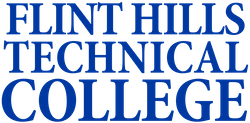
There are 19 community colleges, five technical colleges, and five technical schools in the state of Kansas that are all coordinated by the Kansas Board of Regents. Flint Hills Technical College has been under the governance of the Kansas Board of Regents since 1999. The school was founded in 1963 and operated as part of the Emporia School District until that time. The campus is located in Emporia, Kansas. FHTC is how the school is usually referred to, and it is a public two-year technical college that serves 1020 students. 69% of those students are working towards their degree on a part-time basis, and only 22% of them are doing so taking some form of online course. There are 22 different degree programs offered at FHTC, and they’re accredited by the Higher Learning Commission. Also, both dental programs available are accredited by the American Dental Association and the Commission on Dental Accreditation.
Two-time Sprint Showdown winner and 2008 NASCAR Nationwide Series Champion stock car driver Clint Bowyer attended FHTC. He was born and raised in Emporia and is very involved in community projects there. He sponsors an Automotive Scholarship. FHTC hosts a diverse array of online education services. They are the host of an online high school that serves the community, and there are several general education classes that students can take at any time. FHTC offers hybrid or blended programs in Emergency Services Technology, Industrial Engineering Technology, which both require hands-on components to the instruction; and a program in Interactive Multimedia Design, which is available in the hybrid style, or entirely online. The rest of the programs available entirely online are in Business Administrative Technology, Power Plant Technology, and Healthcare Administration and Management; they are provided asynchronously through the learning management system Moodle. All 6 of these programs get students completely career ready.
FHTC Website: https://www.fhtc.edu/web/site/main
Student Financial Aid Rate: 89.0%
Freshman Retention Rate: 71.0%
Graduation Rate: 72.0%
Final Score: 232.0/300
Related:
